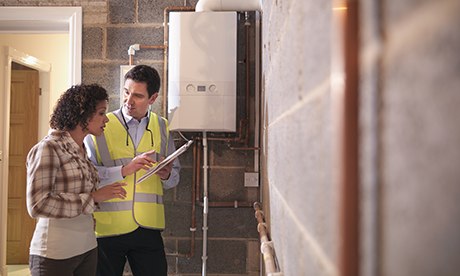 |
| Replacing your home's inefficient old boiler with a new one is one of the best ways to save money on your energy bills and make winter warmer. |
Energy costs are set to rocket for UK households over the next seven years (unless government policies come into force to cap prices). The latest figures from watchdog, show that millions of households that rely on electric heating will be hardest hit, with an average annual rise in their bills of up to £282 by 2020.
However, the 'big six' providers claim the pursuit of profits is not to blame for rising bills: rather, it is the cost of improving Britain's electricity and gas networks, and meeting the EU's renewable energy targets. Whatever the cause, the cost-of-living crisis is in full swing - so how can consumers mitigate energy bills or even bring them down?
Making energy-efficient improvements to the home is by far the most cost-effective way of lowering energy bills and reducing carbon emissions, according to the Energy Saving Trust.
A survey in August showed that 62% have made simple changes - including loft insulation, cavity wall insulation, draught proofing, energy-efficient glazing and heating controls - but only five per cent have installed more significant improvements, such as solar pv, solar thermal, heat-recovery systems and biomass boilers.
Millions of homes remain under-insulated, despite uptake increasing. Figures from the Department of Energy and Climate Change (DECC) show that a million more properties have loft insulation compared to July 2012, while 460,000 more have cavity-wall insulation and 65,000 have solid-wall insulation.
Under Eco, the big energy companies have to offer to certain homes free cavity-wall and/or loft insulation and free boilers. So depending on where you live, whether you claim benefits or live in a property that is difficult to insulate, you may be able to claim this.
Households that make to make more radical changes may choose to install renewable-energy systems such as heat pumps and solar water heaters. These come with hefty installation costs, so are supported by schemes such as the feed-in tariff for solar photovoltaic panels (which generate electricity) and the renewable heat incentive, which is set to be introduced in summer 2014 and covers low-carbon forms of heating.
Another change that is under way is smart metering. By 2020, more than 26 million UK homes will have their electricity and gas meters replaced by digital smart meters that monitor their gas and electricity use.
For more information and to view the original article, click here.







0 comments:
Post a Comment